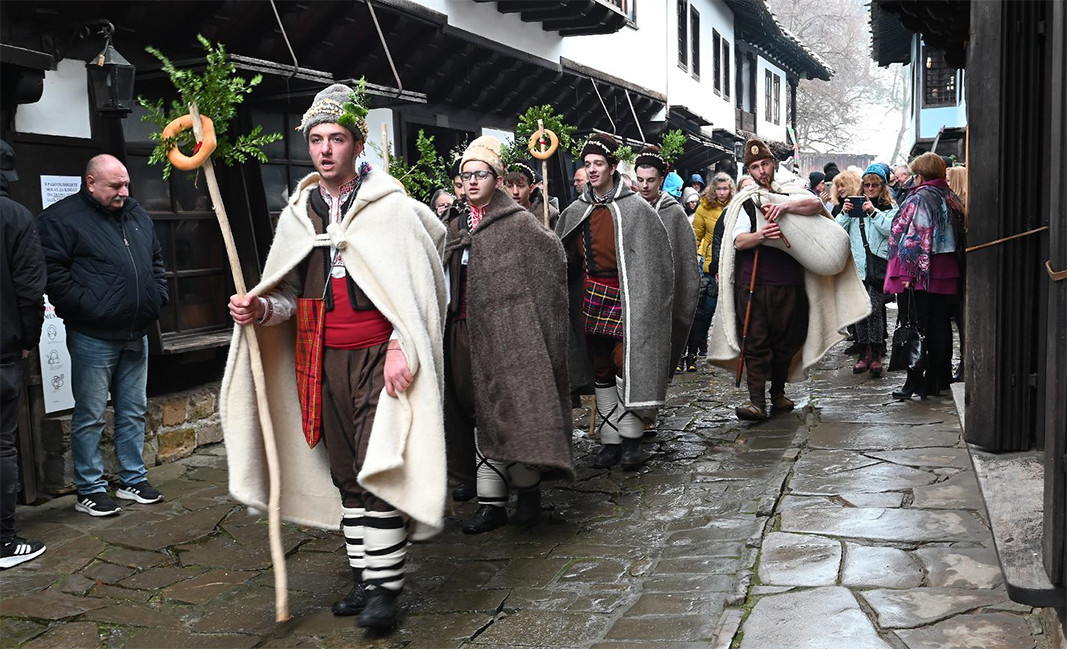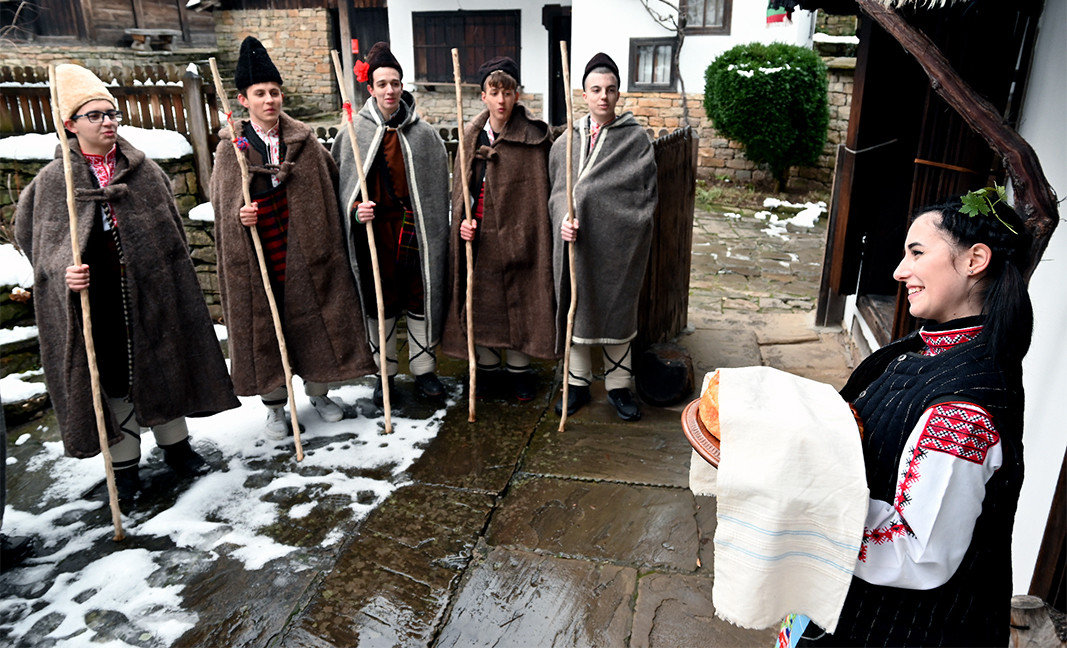One of the unforgettable experiences created by Bulgaria's only open-air ethnographic museum "Etar" near the town of Gabrovo is the school for “koledari” (carolers). The initiative, which started in 2017, is similar to the established school for “lazarki” girls and introduces young people to the ancient Bulgarian traditions related to Christmas.
"Lazaruvane is a rite of initiation for girls, and koleduvane is the initiation of boys,” Violeta Yaneva, coordinator of events at the museum says. “The carol songs in the Bulgarian folk tradition are performed only by men, so our team gives young people between the ages of 14 and 18 the opportunity to get acquainted with the holiday ritual and with some details of the symbolism of the customs.”

Traditionally, the carolers gathers on St. Ignatius Day (Ignazhden) at the home of the leader, whom they call "stanenik", and begins to learn songs and ritual blessings. Preparations at the school start a little earlier, so that the young people have time to get acquainted with the rituals.
"The entire caroling group is called a ‘rod’ and the carolers - ‘rods’. Each new member must make his own rod, which he carries during the rite. This is the moment of his initiation. Usually, this is done in the days between Epiphany and Christmas, and after the ritual all rods are stored in the leader's home and are not used for anything else, except for koleduvane," Violeta Yaneva says.

The calendar group consists of an odd number of participants and all roles are strictly assigned. The koledari are arranged in order of seniority, as those who are caroling for the first time go at the back of the group.
"In Bulgarian traditions, it is believed that a lad who has not participated in caroling is not a real man and would have hard time grabbing the attention of the girls. On the other hand, after marriage men can no longer be koledari. An exception is made only for the leader of the group, who in most cases is married, but there is one additional condition that he must have fulfilled - having at least one child. Another interesting point is that if there is a lass in a house and her beloved is in the group of carolers visiting it, she must give him kravai ( ritual type of bread) she made herself, putting it as a wreath on his hat," Violeta Yaneva says.

Koleduvane is the most important ritual performed after midnight on Christmas Eve. According to folk beliefs if the carolers did not perform their rites at the time fixed by tradition, fields will remain barren, for nothing can be born without being conceived first. That is why every family prepares well in order to welcome the carolers as important guests.
"It is believed that abundance, fertility and well-being enter people's homes with carolers, so their blessings is the ritual gift on which the well-being of every family and the nation as a whole depends," Violeta Yaneva says. "With its magical ritual, the group of koledari symbolically makes the earth fertile so that the crops would be healthy and the livestock would multiply."

The carolers sing specific songs for each member of the family and it is the leader who decides which song needs to be sung and when. Koleduvane itself ends with a general feast for the carolers, (January 7). Usually, all participants in the group gather in the leader’s house and have a feast with the gifts they have received.
The custom of koleduvane will be presented in the "Etar" museum on December 26. The participants in the "Lazarki School" will also take part in the two re-enactments at 11.30 and 13.30.
English: Alexander Markov
Photos: "Etar" ethnographic museum
The historic town of Tryavna will celebrate St Lazarus' Day, traditionally held on the Saturday before Palm Sunday. The Bulgarian custom, known as lazaruvane , is closely linked to the themes of love and marriage and will be re-enacted this..
The feast of the Annunciation (Blagoveshtenie in Bulgaria) is a holy day , a symbol of God’s infinite mercy to people and especially to women, blessed to bear new life, but also an embodiment of the eternal human longing for something better in the..
Clocks and bells will ring out in the center of Stara Zagora on Saturday, when the city will host the XXIV Masquerade Games Festival . The event will start with a traditional parade of participants. Attractive babugers, araps, old men and other..

+359 2 9336 661
